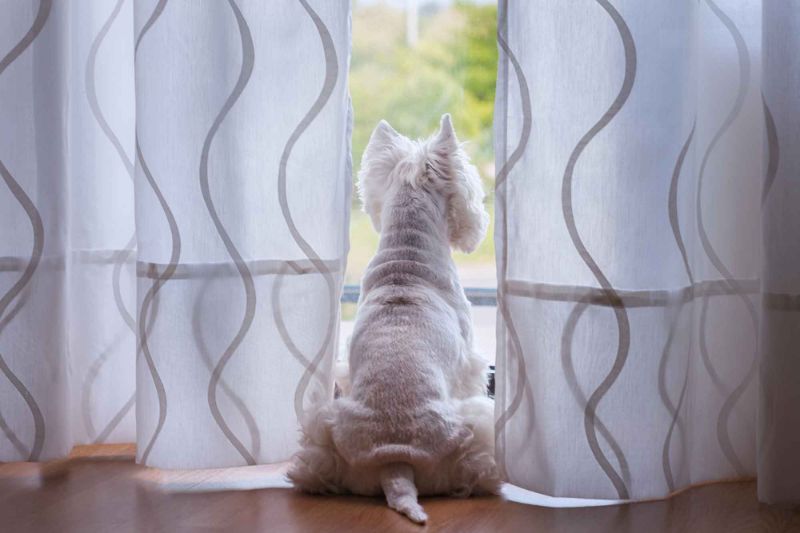Acting Up? It Could Be Pet Separation Anxiety

The end of summer is an exciting time for everybody. There’s so much to get done in order to prepare for the upcoming school year, whatever was gained in the relaxation department may quickly fall to the wayside.
Rising stress levels aren’t the only things a household pet must contend with. In fact, marked decreases in owner’s time, attention, and affection take their tolls, and the result may be pet separation anxiety.
When the Days Are So Full
Many family pets truly relish all the time they have with the kids and the grownups alike. All summer long, there were peanut butter kisses, frozen treats, and lots of outdoor fun.
Once everyone “goes back to school”, the days may seem rather long and dull. Loneliness, fear, and doubt can cause a great deal of stress and pet separation anxiety can threaten overall pet health and wellness.
The Impact on Pets
A typical indoor-only cat may not necessarily feel the same way as a super involved, gregarious dog. That being said, however, all pets feel the impact of shifting dynamics at home and effects can range from subtle to obvious.
Leaving Pets Alone
When a pet feels an alarming lack of its family’s presence and constant companionship, the following behaviors can surface:
- Pacing
- Chewing in furniture, woodwork, and anything else they can find
- Soiling inside the home
- Obsessive and repetitive vocalization
- Exhaustively whining
- Clawing at the door you left through
- Destructive behaviors
- Rummaging through the trash bins
Sometimes pet separation anxiety can get out of hand. The good news is that it’s not only preventable, you can support your pet in many ways.
Helpful Tips For Pet Separation Anxiety
Above all, do not punish or scold your pet for acting out. This can backfire and only reinforce the behaviors you wish to curb. Instead, try to:
- Incrementally leave your pet for short periods of time. Only increase the time apart when your pet shows you it is okay.
- Spend a good amount of time with your pet before you leave.
- If appropriate, exercise them to the point where they are ready for a long rest
- Do not get your pet riled up before you leave or the minute you return home; try to make your departures and arrivals a “non-event”.
- Provide interactive toys and leave them with comforting items like a t-shirt with their favorite person’s scent on it.
- Be sure to play with them, walk them, or otherwise engage them before bed so they use up any extra energy.
If symptoms carry on, it may be time to investigate further. An underlying medical condition can result in pet separation anxiety. More often, enrollment with a doggie daycare facility or hiring a pet sitter/dog walker greatly reduces symptoms.
As a last resort, some animals benefit from prescription medication to curb destructive, stressful behaviors. No matter what your pet needs, Harpeth Hills Animal Hospital is always here to help. Please give us a call.

